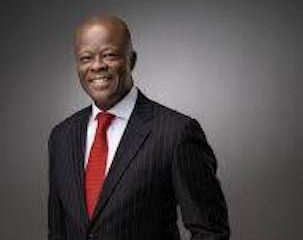NEWS
FG seeks Global Efforts Against Terrorism, Condemns Illicit Financial Flow

The Federal Government has called on world leaders to strengthen international cooperation as part of efforts to successfully combat terrorism and drug trafficking, among other crimes.
This is even as Nigeria expressed concern over illicit financial flows from developing to developed economies.
These were the positions presented by Nigeria at the ongoing conference of the United Nations Commission on Crime Prevention and Criminal Justice taking place in Vienna, Austria.
The Chairman, National Drug Law Enforcement Agency, (NDLEA), retired Brig. Gen. Buba Marwa, presented Nigeria’s positions on items 6C and 7 at the meeting on May 19 and May 20.
A statement by the agency’s Director, Media and Advocacy, Mr Femi Babafemi, on Friday in Abuja, said Marwa urged nations to deepen cooperation and strengthen the processes of combating the financing of terrorism.
Marwa added that while prevention of terrorists from benefitting from ransom payments was crucial, it was also important for them not to overlook the trafficking in illicit drugs.
According to him, it is also imperative to keep an eye on and control the proliferation of illicit traffic in narcotics and psychotropic substances.
“And substances of abuse that serve as conflict multipliers leading to escalation of both the scope and intensity of violent activities.
“Nigeria is also worried about the existing and growing links between terrorism and other forms of crime such as corruption, illicit financial flows, money laundering, illicit trafficking in drugs, cybercrime, trafficking in persons and smuggling of migrants.
“We, therefore, call on states to strengthen international cooperation to combat these links by providing information, intelligence sharing, mutual legal assistance, logistics support and military cooperation and other forms of technical assistance.
“This is to enhance the capacity of security personnel to combat this new and ugly phenomenon,” he said.
Marwa said as nations renewed their desire to improve international cooperation to address all forms of crimes, Nigeria urged all states, once again, to make sincere efforts to address the root causes.
This, he said, included; poverty, economic deprivation, inequality, drug abuse and other socio-economic factors.
“These factors have been found to be indirectly responsible for the increasing incidences of terrorism and other forms of crimes,” he said.
The NDLEA boss said Nigeria noted with great concern the incidence of illicit financial flows, channeled through the financial systems annually, particularly from developing to developed economies.
He said the perpetrators of this anomaly, including financial institutions who acted as enablers, state parties should be dissuaded.
He added that illicit financial flows when tracked, should not remain in the custody of enabling financial institutions but transferred into escrow accounts, preferably in development banks pending return to countries of origin.
“In this regard, we call for the implementation of the recommendations of the Financial Accountability, Transparency and Integrity (FACTI) panel in support of asset recovery and the agenda 2030 for sustainable development,” he said. (NAN)
NEWS
Breaking: George Akume remains SGF – Presidency

The presidency says there has been no change in the status of Senator George Akume, as Secretary to the Government of the Federation.
This is according to a statement by Special Adviser to the President on Information and Strategy, Bayo Onanuga.
Mr Onanuga says President Bola Tinubu, currently in Saint Lucia, has not made any new appointments.
He described the information circulating about Akume’s replacement as untrue, adding that agents of mischief fabricated it.
GeorgeAkume
sgf
NEWS
Diri Campaigns Against Drug Abuse, Trafficking

From Mike Tayese, Yenagoa
Bayelsa State Governor, Sen. Douye Diri yesterday, led a campaign against drug abuse and illicit trafficking as part of activities commemorating the International Day Against Drug Abuse and Illicit Trafficking.
Diri advised people of the state, particularly the youths, to shun hard drugs and trafficking of illicit substances, saying they were harmful to their health and to the society.
The Bayelsa governor, who spoke shortly after the weekly Prosperity Walk exercise at the Samson Siasia Sports Complex in Yenagoa, also urged youths to develop themselves by acquiring a skill and work towards actualising their God-given potential.
“We just completed a nine to 10km walk, which is a test of our fitness. As it is said, health is wealth.
“Today is the International Day Against Drug Abuse and Illicit Trafficking. We are not only observing the global campaign, we are also leading it here in Bayelsa.
“No one in his right senses goes to commit crime and violent acts except that individuals are under the influence of hard drugs. My advice to youths is to be self-confident, have the fear of God and develop your innate potential for you to become a star.”
He implored youths to emulate the shining example of a Bayelsa-born United States-based athlete, Victory Godah, who was discovered through the state’s sports programmes.
He commended her gesture of donating sporting equipment as a way of giving back to the state.
“Victory Godah from Ekeremor local government area was discovered here and because of her skill, she is now at the University of Minnesota, United States. She has given back to the state through sports equipment so that more of us can have that access.”
In his remarks, the Commissioner for Health, Prof. Seiyefa Brisibe, emphasised the importance of the weekly walk, stating that participants above 40 years would have their blood pressure controlled after taking about 5,000 steps.
Also, state chairman of the Drug Abuse, Addiction, Prevention and Rehabilitation Committee, Dr Peter Owonaro, said the committee’s outreach in the state had been a huge success, noting that a recent research indicated that the drug abuse prevalence rate in Bayelsa dropped by five per cent from 21.4 per cent.
Also, the state commander of the National Drug Law Enforcement Agency (NDLEA), Kanu Sunny, lauded the state government for its unprecedented support in the fight against drug abuse and trafficking.
He said the campaign was taken to secondary schools as well as tertiary institutions and encouraged all to join in the war against the menace.
Foreign News
Ally of Cameroon President, 92, Quits ‘Broken’ Government to Challenge Him

Issa Tchiroma Bakary – a prominent minister and long-time ally of President Paul Biya – has quit Cameroon’s government, in the hope of ending 92-year-old Biya’s four-decade grip on power in upcoming elections.
Just four months before the central African nation went to the polls, Tchiroma said the Biya administration he belonged to had “broken” public trust and he was switching to a rival party.
“A country cannot exist in the service of one man,” he said on Wednesday.
While he was communications minister, Tchiroma notably came under fire for denying – then backtracking on his denial – that Cameroonian soldiers had killed women and children in a viral video.
His other roles during almost two decades in government include being a spokesman for the Biya government, and, until his resignation on Tuesday, he was employment minister.
Paul Biya – the world’s oldest head of state – has yet to confirm if he will attempt an eighth term as president. Last year, the country banned reports on the president’s health following rumours he had died.
As this election approaches, high unemployment and soaring living costs are of concern to many Cameroonians, as are corruption and security. A separatist insurgency in the English-speaking provinces as well as jihadists operating in the northernmost region have forced many thousands of Cameroonians from their homes in the past decade.
Cracks in Tchiroma’s relationship with President Biya were blown open earlier this month, when he told crowds in his home city of Garoua that Biya’s time in power had not benefited them in any way.
Tchiroma, widely reported to be 75, continued this criticism in a 24-page manifesto released a day after his resignation – promising to dismantle “the old system” so that Cameroon could move beyond “abuse, contempt, and the confiscation of power”.
One of his proposed solutions is federalism – he is offering to hold a referendum on devolving more power to Cameroon’s 10 provinces. This has long been mooted by many as a solution to the country’s so-called Anglophone crisis.
Specifically addressing English-speaking Cameroonians, who have long complained of marginalisation and discrimination in Francophone-dominated public institutions, he said “you do not need people to speak for you – you need to be listened to” and that “centralisation has failed”.
Tchiroma also used his manifesto to say Cameroon “has been ruled for decades by the same vision, the same system. This model, long presented as a safeguard of stability, has gradually stifled progress, paralysed our institutions, and broken the bond of trust between the state and its citizens”.
As the October presidential election approaches, rights groups have condemned the government’s crackdown on dissent.
Shortly after Tchiroma announced his plans to run for the presidency, the government reportedly announced a ban on all political activities by his Cameroon National Salvation Front (CNSF) party in a sub-district of the Far North region – a part of the country where he is said to be an influential power-broker.
Weeks earlier, fellow presidential hopeful Maurice Kamto had his movements curtailed during a two-day police stakeout in Douala, after promising supporters at a rally in Paris that he would protect Biya and his family if he wins in October.
Parliamentary elections that were also supposed to take place earlier this year have been delayed until 2026.
Reaction to Tchiroma’s presidential bid has been mixed – some think he is canny.
“By positioning himself as the elder statesman who ‘saw the fire coming’, Tchiroma is hedging that his break with Biya will be seen as bold – not opportunistic,” Cameroonian analyst and broadcaster Jules Domshe said.
“From economic fallout to youth unemployment, insecurity, and growing unrest in the North-West, South-West, and Far North [regions], Cameroon is ripe for change.”
Opposition voices are divided – some want Tchiroma to support Kamto, who was the runner-up in 2018 with 14% of votes. But others say he is tainted by his long association with Biya.
“He cannot embody change… He was part of the system for too long. The youth do not trust him,” says Abdoulaye Harissou, a legal notary and prominent critic once detained by the government.
Another member of the opposition – Jean Michel Nintcheu of the APC coalition – simply said: “We don’t see Tchiroma as a potential winner.”
| ReplyReply allForwardAdd reaction |






























